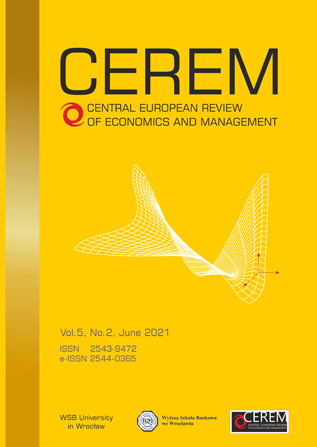Correcting inequality of personal incomes before income taxes and transfers: theoretical underpinnings and competition policy options
Correcting inequality of personal incomes before income taxes and transfers: theoretical underpinnings and competition policy options
Author(s): Friedrich L. SellSubject(s): Micro-Economics, Socio-Economic Research
Published by: Wyższa Szkoła Bankowa we Wrocławiu
Keywords: Market imperfections; superstar economy; Gini coefficient; competition policy
Summary/Abstract: Aim: The purpose of this paper is to bring together theory and policy of (personal) income distribution on the one hand and competition policy on the other hand. Design / research: The methods used in this paper cover a brief model set-up, followed by a numerical model-calibration. Thereafter, we present a model simulation and proceed to a Gini decomposition. Herewith, we are able to demonstrate how market imperfections translate into a higher concentration of personal incomes. Conclusions / findings: Our major finding is that only a rigorous competition policy is qualified to not only correct for market imperfections, but also to fight a greater inequality of personal incomes ex-ante. Originality / value of the article: This contribution provides – to our knowledge for the first time – a simultaneous explanation for stagnating, if not falling real wages and a deteriorating development of inequality of personal incomes, as measured by the Gini coefficient ex-ante. The US economy is a case study for this double observation, but many more developed economies may follow in the foreseeable future. Limitations of the research: The implication of the research is that long before government intervenes income distribution via taxes and transfers, competition policy should correct for market imperfections and thereby reduce the inequality of personal incomes. Unfortunately, to this point, we observe a lack of meaningful macroeconomic indicators for market imperfections and hence the possibility to conduct broad econometric studies in this area of investigation.
Journal: Central European Review of Economics and Management (CEREM)
- Issue Year: 5/2021
- Issue No: 2
- Page Range: 55-84
- Page Count: 30
- Language: English

